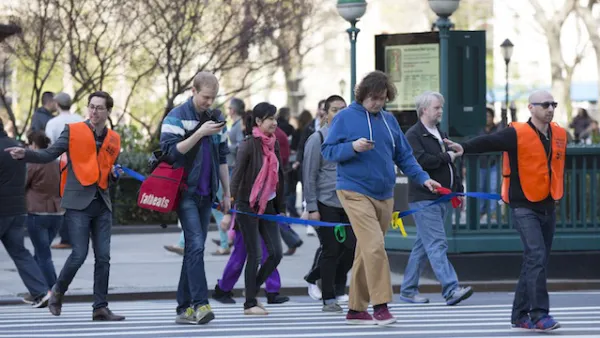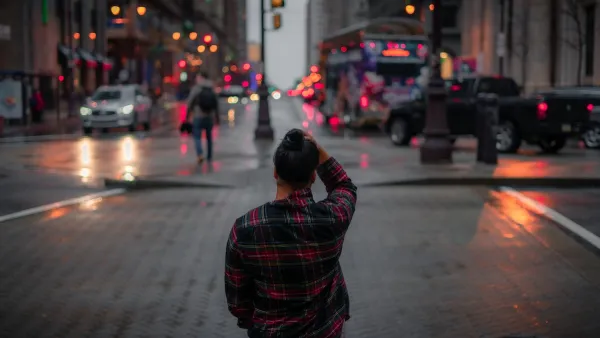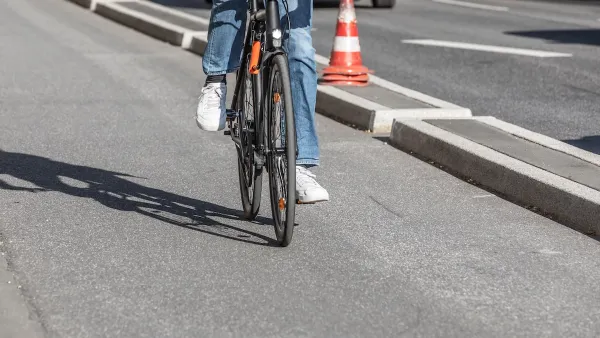Sarah Goodyear looks at how smart phones and augmented reality applications may hold the key to enriching urban exploration and getting Americans off their sofas and out exploring their environments.
According to Goodyear, in 21st-century America, walking "has become an endangered form of locomotion." Saving it from extinction was the topic of a symposium called "Walking and the Life of the City" held last week by the NYU Rudin Center for Transportation Policy and Management.
Delivering the keynote address at the symposium was journalist Tom Vanderbilt, whose recent four-part series of articles in Slate tackled the crisis in American walking. In his address, Vanderbilt noted the sad fact that "people in the U.S. walk less than the citizens of any other industrialized nation."
Other presenters at the symposium looked at the potential for new technologies to facilitate a return to walking. Augmented Reality (AR), like Google's Project Glass wearable computer, was seen as one potential avenue for enriching urban exploration.
Sarah Kaufman, a research associate at the Rudin Center, "expects that in the not-too-distant future, information, navigation, social networking, and advertising related to our surrounding physical environment could all be integrated on devices that we carry with us or wear."
While AR expansion may be a few years off, another presenter addressed the changes that smart phones may already be having on how we view our surroundings, especially those unfamiliar to us.
"Andrew Mondschein, another Rudin Center fellow, presented research suggesting that people who have cell phones make social trips further afield than those who don't. While the findings are preliminary, Mondschein is researching the possible link between the availability of information -- not just on phones, but also online -- and a potential expansion of the city-dweller's horizons," notes Goodyear.
Thanks to Alesia Hsiao
FULL STORY: Can Our Smart Phones Convince Us to Walk More?

Analysis: Cybertruck Fatality Rate Far Exceeds That of Ford Pinto
The Tesla Cybertruck was recalled seven times last year.

National Parks Layoffs Will Cause Communities to Lose Billions
Thousands of essential park workers were laid off this week, just before the busy spring break season.

Retro-silient?: America’s First “Eco-burb,” The Woodlands Turns 50
A master-planned community north of Houston offers lessons on green infrastructure and resilient design, but falls short of its founder’s lofty affordability and walkability goals.

Test News Post 1
This is a summary

Analysis: Cybertruck Fatality Rate Far Exceeds That of Ford Pinto
The Tesla Cybertruck was recalled seven times last year.

Test News Headline 46
Test for the image on the front page.
Urban Design for Planners 1: Software Tools
This six-course series explores essential urban design concepts using open source software and equips planners with the tools they need to participate fully in the urban design process.
Planning for Universal Design
Learn the tools for implementing Universal Design in planning regulations.
EMC Planning Group, Inc.
Planetizen
Planetizen
Mpact (formerly Rail~Volution)
Great Falls Development Authority, Inc.
HUDs Office of Policy Development and Research
NYU Wagner Graduate School of Public Service




























